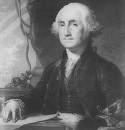MONEY FROM CUBA IN AMERICA´S INDEPENDENCE CAUSE

By Luis Sexto
George Washington would be the first to order an addition in the school history textbooks. Nobody could better appreciate the million pound sterling given as contribution by the ladies of Havana, and which helped him provision his army, then lacking in food, weapons and ammunition, to definitely beat the British in the battle of Yorktown on October 31st, 1781.Certain scholars and university professors from the United States have claimed for years the right of U.S. students, including those of Latin origin, to learn about the support by Spaniards, Cubans, Mexicans and other Latin American and Caribbean countries in the 13 Colonies´ War of Independence.Even today the European participation, particularly the French, is the only one spoken about, and the names of Lafayette, Von Steuben, Kalb, amongst others, are praised. Historian Stephan Bonsal affirms in one of his books that the monetary contribution of the Cuban women "can be considered, truly, as the foundation on which the building of North American independence was erected". History is like that. In the spring of 1781, Washington reported to the General Count of Rochambeau, Chief of the French Forces in North American territory, of the logistics needs of his troops, calculated to total one million two hundred thousand (1,200,000) pound sterling. The military man asked Degrasse, Admiral of the French Fleet anchored in Santo Domingo, for this amount, considered a fortune at the time. The seaman attempted to collect the money on that island, but that was impossible. He then sent three of his ships to Havana, one of which was being captained by the famous Saint Simon. Wealthy women, the wives and daughters of the colony's high officials, merchants and Creole landowners, stripped themselves of their jewelry, to make this donation, the reasons for which would have to be searched in their solidarity feelings for the North American people, or in their hatred for England, which had governed and ill-treated the inhabitants of Havana in 762. The fact is that their sacrifice covered almost the total needed, distributed afterwards amongst the independence troops and the French.Cuba's Captain General at the time was Juan Manuel Cagigal, who had an aid named Francisco de Miranda, later forerunner of independence in the Latin American countries. Both fought on the insurgent side in the battle of Pensacola, led by Bernardo Gálvez, Spanish Governor of Louisiana who since 1777 supported the revolutionaries of the 13 Colonies. Galveston was so baptized to honor him. In Pensacola in 1781, like in Mobile in 1780, four thousand (4,000) soldiers from Cuba, many of whom were natives, whites and blacks from the island; two thousand (2,000) from Mexico and hundreds from Puerto Rico, Haiti, Santo Domingo, fought there.The story could be written in the present, but it happened in the indelible and irreplaceable past. George Washington would be the first to attest to this.
0 comentarios